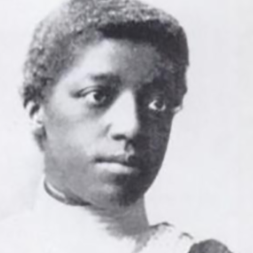From out my open window, I can see
The rolling waves, as fierce and restlessly,
They dash against the long, long stretch of shore,
And in the distance, I can dimly trace,
Some out-bound vessel having left her place
Of Harbor, to return perhaps no more.
Within my mind there dwells this lingering thought,
How oft from ill the greatest good is wrought,
Perhaps some shattered wreck along the strand,
Will help to make the fire burn more bright,
And for some weary traveller to-night,
’Twill serve the purpose of a guiding hand.
Ah yes, and thus it is with these our lives,
Some poor misshapen remnant still survives,
Of what was once a fair and beauteous form,
And yet some dwelling may be made more bright,
Some one afar may catch a gleam of light,
After the fury of the blighting storm.
Published:
1914
Length:
Regular
Literary Movements:
Harlem Renaissance
Anthology Years:
2024
Themes:
Faith & Hope
Nature
Literary Devices:
End Rhyme
when a poem has lines ending with words that sound the same
Personification
the attribution of human qualities to a non-human thing

